
QWorld Quantum Science Days 2023 | May 29-31, Online
QWorld Quantum Science Days 2023 (QSD 2023) is a scientific meeting organized by QWorld (Association) to provide opportunities to the quantum community to present and discuss their research results at all levels (from short projects to thesis work to research publications), and to get to know each other.
The event is held online by using a Discord server and Zoom meetings between 10:00 and 18:30 (UTC) on May 29-31, 2023.
Registration:
We have an optional registration fee. If you have a budget to attend a scientific event (e.g., a scientific grant), we expect you to pay a registration fee. If you do not have such a budget, you are welcome to attend our event free of charge.
The participation fee is EUR 240 or USD 270 (VAT included). If you have such a budget, but it is limited, then you can use a 20%, 35%, or 50% discount. Click for the registration fee payment details
Participation certificate:
Any registered participant can earn a participation certificate in one of the following ways:
- Paying at least 50% of the registration fee, or
- At least silver-level QWorld’s donors, or
- Attending at least 60% of the virtual conference program.
Registration form >>
Deadline for registration is Friday, May 26, 2023.
Sponsorship
We were looking for partners to sponsor QSD2023.
Click for the details >>
Silver level sponsors:


Call for contributed talks has been closed.
Contact:
qsd [at] qworld.net
See the recordings of the event on our playlist >>
Booklet | Program | Calendar | Invited Speakers | Thematic Session | Contributed Talks | Committees | Code of Conduct
Program
Monday, May 29
Session 1, 10:00 (UTC), chair: Jarosław Adam Miszczak
- Opening
- Rayssa Bruzaca de Andrade: Probing biological samples with quantum light
- Shubhayan Sarkar: Self-testing composite measurements and bound entangled state in a unified framework
- Muhammad Shuraim: Generation, Stabilization and Manipulation of Kerr Cat States in Superconducting Resonators
- Alex Stephane Piedjou Komnang: Single microwave Photon detection based Josephson junction
- Carlos Javier Valdez: Effective study of the quantum damped harmonic oscillator
Session 2, 13:00 (UTC), chair: Marlou Slot
- Volodymyr Tkachuk: Studies of spin systems on a quantum computer
- Kh. P. Gnatenko: Entangling capability of multi-qubit parameterized quantum circuits and its calculation with quantum programming
- Aritra Sarkar: Visualizing Quantum Circuit Probability
- Radu Marginean: Uranium – a visual quantum computing platform
- Yun Shang: Faster quantum sampling of Markov chains in nonregular graphs with fewer qubits
- Aby Philip: Quantum Steering Algorithm for Estimating Fidelity of Separability
Session 3, 16:00 (UTC), chair: Abuzer Yakaryilmaz
Thematic session “Building an Open Quantum Ecosystem“
- Paweł Gora: The QCousins Program – Building a Global Network of Quantum Computing Groups
- Claudia Zendejas-Morales: Year-long Open QCourse on Quantum Computing & Programming
- Radha Pyari Sandhir: Quantum Explorers: A Game-based Approach to Quantum Education
- Will Zeng: Let’s have more open source quantum tech projects!
- Marlou Slot: Womanium Quantum – Igniting the Quantum Leaders of Tomorrow
- Jen Dodd: QHack, The One-of-a-kind Quantum Hackathon
- Brian Ingmanson: Qiskit Fall Fest: Building a Quantum Community With a Student-First Approach
- Yasser Omar: The World Quantum Day – 14 April
- Andris Ambainis: Latvian Quantum Initiative – Building Quantum Technologies in a Small Country
- Garazi Muguruza: Women in Quantum Development (WIQD)
Tuesday, May 30
Session 4, 10:00 (UTC), chairs: Zeki Seskir & ?
- Julia Cramer: Let’s talk about Quantum; Societal readiness through science communication research
- Anastasija Nikiforova: Framework for understanding quantum computing use cases from a multidisciplinary perspective and future research directions
- Zeki C. Seskir: Democratization of quantum technologies
- Zeki C. Seskir: Global innovation and competition in quantum technology, viewed through the lens of patents
- Luca M. Possati: Is it rational to connect quantum computers?
- Mansur Ziiatdinov: QJudge: Automated Testing of Students Solutions for Quantum Algorithms Courses
Session 5, 13:00 (UTC), chair: Taha Rouabah
- Igor Dotsenko: Circular Rydberg atoms for quantum simulations
- Gabriela Wojtowicz: Tensor network techniques for quantum transport beyond weak coupling
- Abdellah Tounsi: Systematic Braid Matrix Generation for Topological Quantum Computing
- Nacer eddine Belaloui: TQSim: An Open-Source Package for Topological Quantum Computing with Anyons
- Utkarsh Azad: Surface code design for asymmetric error channels
- Elijah Pelofske: Mapping state transition susceptibility in quantum annealing
Session 6, 16:00 (UTC), chairs: Taha Rouabah & Abuzer Yakaryilmaz
- Monika Aidelsburger: Quantum simulation – Engineering & understanding quantum systems atom-by-atom
- Massimiliano Incudini & Francesco Di Marcantonio: Quantum Advantage Seeker with Kernels (QuASK): a software framework to speed up the research in quantum machine learning
- Eden Schirman: Pioneering End-to-End Quantum Software Development with Classiq
Wednesday, May 31
Session 7, 10:00 (UTC), chair: Aurél Gábris
- Özlem Salehi: Near-optimal circuit design for variational quantum optimization
- Shaurya Agrawal: A Novel Multi-Stage Cancer Workflow using Quantum and Classical Machine Learning & microRNA signatures
- Tooba Bibi: Quantum carpets: efficiently probing fractional revivals in position-dependent mass systems
- Seyed Navid Elyasi: Investigation of open quantum batteries and using IBM quantum computers as a versatile platform to simulate them
Session 8, 13:00 (UTC), chair: Kh. P. Gnatenko
- Christopher Bishop: The secrets to working in quantum
- R. Dharmaraj: A Riemannian Genuine Measure of Entanglement for Pure States
- Shrobona Bagchi: Tighter And Stronger Quantum Speed Limits For General Quantum States
- Guillermo Lugilde: Phase estimation with functional quantum abstract detecting systems
- Areej Ilyas: Nonlocality Distillation With Non-Trivial Marginals
- Manal Khawasik: A Secured Half-Duplex Bidirectional Quantum Key Distribution Protocol against Collective Attacks
Session 9, 16:00 (UTC), chair: Aritra Sarkar
- Ankit Khandelwal & Handy Kurniawan: Multiple-control Toffoli Circuit Classification and Transformation
- Nihar Gargava: Quantum gate synthesis and Ramanujan
- Shrobona Bagchi: Remote Creation of Quantum Coherence via Indefinite Causal Order
- Yanzhu Chen: Improving variational quantum algorithms with an adaptive technique
Calendar
Invited speakers
- Monika Aidelsburger (LMU/MCQST München): Quantum simulation – Engineering & understanding quantum systems atom-by-atom
- Julia Cramer (Leiden University, Science Communication and Society & Leiden Institute of Physics): Let’s talk about Quantum; Societal readiness through science communication research
- Özlem Salehi (QWorld & Institute of Theoretical and Applied Informatics, Polish Academy of Sciences): Near-optimal circuit design for variational quantum optimization
- Yanzhu Chen (Virginia Tech): Improving variational quantum algorithms with an adaptive technique
- Igor Dotsenko (Laboratoire Kastler Brossel, Collège de France): Circular Rydberg atoms for quantum simulations
- Volodymyr Tkachuk (Ivan Franko National University of Lviv, Ukraine): Studies of spin systems on a quantum computer
- Rayssa Bruzaca de Andrade (Womanium & NKT Photonics): Probing biological samples with quantum light
- Eden Schirman (Classiq for Academia): Pioneering End-to-End Quantum Software Development with Classiq
- Christopher Bishop (Improvising Careers): The secrets to working in quantum
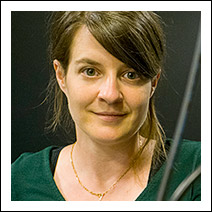
Monika Aidelsburger (LMU/MCQST München)
Title: Quantum simulation – Engineering & understanding quantum systems atom-by-atom
Abstract: The computational resources required to describe the full state of a quantum many-body system scale exponentially with the number of constituents. This severely limits our ability to explore and understand the fascinating phenomena of quantum systems using classical algorithms. Quantum simulation offers a potential route to overcome these limitations. The idea is to build a well-controlled quantum system in the lab, which represents the problem of interest and whose properties can be studied by performing measurements. In this talk I will introduce quantum simulators based on neutral atoms that are confined in optical arrays using laser beams. State-of-the-art experiments now generate arrays of several thousand particles, while maintaining control on the level of single atoms. I will show how these systems can be used to study the properties of topological phases of matter. In the end I will provide a brief outlook on new directions in the field based on the unique properties of alkaline-earth(-like) atoms.
Monika Aidelsburger is a professor and group leader at Ludwig Maximilian University of Munich (LMU), Germany. Her research group focuses on analog quantum simulations of many-body physics with ultracold atoms in optical lattices, aiming to simulate lattice gauge theories coupled to fermionic matter using ultracold Yb atoms. Aidelsburger completed her PhD on artificial gauge fields with ultracold atoms in optical lattices with Prof. Immanuel Bloch at LMU, which was published by Springer Nature as part of their Outstanding PhD thesis series. After a postdoctoral position at Collège de France in Paris, where she worked alongside Prof. Jean Dalibard on out-of-equilibrium phenomena with uniform Bose gases, she returned to LMU as a group leader. Aidelsburger is currently a tenure-track professor for Synthetic Quantum matter at LMU and holds a joint position at the Max Planck Institute of Quantum Optics. In recognition of her work, she has received several grants and awards, including the ERC Starting Grant, Alfried-Krupp-Förderpreis and Klung Wilhelmy Science Award.
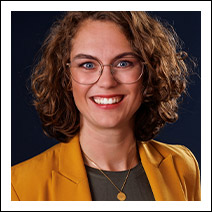
Julia Cramer (Leiden University, Science Communication and Society & Leiden Institute of Physics)
Title: Let’s talk about Quantum; Societal readiness through science communication research
Abstract: The current ‘second quantum revolution’ promises dramatic technological changes for society. While there is clearly an international push to quantum research and development, it also comes with societal responsibility. Now is the time to involve society. We live in a time of science skepticism. We know from climate debates and vaccine discussions that our current society does not just ‘believe’ in science. This is a very different cultural atmosphere than the times in which the classical computer entered society and people set foot on the moon. Therefore, we think that research on the impact of quantum technology on society is highly relevant. Understanding the concerns, questions and acceptance within societal groups will help to increase the societal relevance of quantum technology, as we will know in an early stage what specific groups in society need and expect.
The ambition of our research group Quantum and Society at Leiden University is that social engagement, both of the quantum community towards society, and of society towards quantum technology, can be increased in a well-considered way in the coming years. Studies on the impact of communication by experts and media, the attitudes of social groups, empirical research on interventions such as popular science events and dialogues between scientists and society will contribute to improving and advising on the societal implementation of the promising quantum technology.
In this talk I will discuss the urge for and implications of research on quantum and society. I will discuss some of the research findings of our research group, such as the result of a framing-study on TEDx talks about quantum. We found that quantum is often framed as ‘spooky’ and enigmatic, that a majority of quantum experts explains a quantum concept such as superposition and that benefits of quantum technology are more often discussed than the risks.
Julia Cramer is an assistant professor at Science Communication and Society, IBL, and the Leiden Institute of Physics, LION. Julia’s research is focused on the impact of quantum science and technology on society from a science communication perspective. Cramer studied Applied Physics at Delft University of Technology and ETH Zurich. She obtained her PhD (funded by the Casimir Prize) in 2016 on ‘Quantum Error Correction with Spins in Diamond’ at QuTech at Delft University of Technology. During her PhD she was one of the Faces of Science of the KNAW and she participated in the theater show Science Battle. She is fascinated about communicating science to the (non-obvious) publics. During her PhD in quantum science, Julia Cramer realized a great challenge and opportunity to connect to society in an early stage. She is involved in National and European groups focusing on the impact of quantum technology on society.
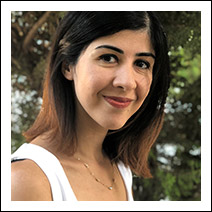
Özlem Salehi (QWorld & Institute of Theoretical and Applied Informatics, Poland)
Title: Near-optimal circuit design for variational quantum optimization
Abstract: Quantum Approximate Optimization Algorithm (QAOA) is one of the leading quantum optimization algorithms and a candidate for showing near-term quantum advantage. In this talk, I will first talk about the state-of-the-art method for implementing QAOA, which often results in redundancy and increased usage of resources. Next, I will introduce Functional QAOA, an alternative approach for implementing QAOA which results in near-optimal circuits with respect to all relevant cost measures (e.g., number of qubits, gates, circuit depth) for optimization tasks like Travelling Salesman Problem and Max-K-Cut.
References:
B Bakó, A Glos, Ö Salehi, Z Zimborás, “Near-optimal circuit design for variational quantum optimization.”, arXiv preprint arXiv:2209.03386, 2022
E. Farhi, J. Goldstone, and S. Gutmann, “A quantum approximate optimization algorithm,” Tech. Rep. MIT-CTP/4610, 2014.
S. Hadfield, Z. Wang, B. O’Gorman, E. G. Rieffel, D. Venturelli, and R. Biswas, “From the quantum approximate optimization algorithm to a quantum alternating operator ansatz,” Algorithms, vol. 12, no. 2, p. 34, 2019.
A. Glos, A. Krawiec, and Z. Zimbor´as, “Space-efficient binary optimization for variational quantum computing,” npj Quantum Information, vol. 8, no. 1, pp. 1–8, 2022.
Özlem Salehi is a postdoctoral researcher at the Institute of Theoretical and Applied Informatics of the Polish Academy of Sciences. She obtained her Ph.D. degree in the field of theoretical computer science in 2019 from Boğaziçi University, İstanbul, Turkey. Her research area focuses on quantum optimization. In particular, she has been recently working on modeling and solving combinatorial optimization problems using quantum annealing and QAOA. She is one of the coordinators of the QEducation Department under QWorld. She has organized and instructed quantum programming workshops and developed open-source educational materials to promote quantum computing.
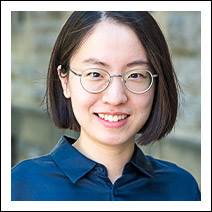
Yanzhu Chen (Virginia Tech)
Title: Improving variational quantum algorithms with an adaptive technique
Abstract: Variational quantum algorithms show promise in providing advantage over purely classical computing by using shallow quantum circuits. The quality of the variational ansatz plays a crucial role in the performance of the algorithm. Balancing the ansatz expressivity and the information about the target problem, Adaptive Derivative-Assembled Problem-Tailored Variational Quantum Eigensolver (ADAPT-VQE) utilizes an adaptive ansatz to reach the desired accuracy with shallower circuits than conventional approaches. In this talk, I will introduce TETRIS-ADAPT-VQE, a modified version of ADAPT-VQE which produces even more compact circuits. Other than simulating quantum systems, variational algorithms have the potential of solving many classical optimization problems that can be mapped to finding the ground state of a Hamiltonian. A prototypical algorithm is the Quantum Approximate Optimization Algorithm (QAOA). I will review ADAPT-QAOA, which improves the convergence rate by applying the adaptive technique. Then I will discuss the entanglement generated during its execution, which exhibits different behavior from the standard QAOA.
References:
[1] TETRIS-ADAPT-VQE: an adaptive algorithm that yields shallower, denser ansatze. P. G. Anastasiou, YC, N. J. Mayhall, E. Barnes, S. E. Economou. arXiv:2209.10562
[2] Adaptive quantum approximate optimization algorithm for solving combinatorial problems on a quantum computer. L. Zhu, H. L. Tang, G. S. Barron, F. A. Calderon-Vargas, N. J. Mayhall, E. Barnes, S. E. Economou. Phys. Rev. Research 4, 033029
[3] How Much Entanglement Do Quantum Optimization Algorithms Require? YC, L. Zhu, C. Liu, N. J. Mayhall, E. Barnes, S. E. Economou. arXiv:2205.12283
Yanzhu Chen is a postdoc in the Physics Department and Center for Quantum Information Science and Engineering at Virginia Tech. She is interested in quantum algorithms, noise in quantum computing, measurement based quantum computing, and quantum control. Her current works focus on properties and improvements of adaptive variational quantum algorithms and protocols of mitigating errors in quantum information processing. Yanzhu received her PhD from Stony Brook University, supervised by Tzu-Chieh Wei, and joined Virginia Tech in 2021, working with Sophia Economou and Edwin Barnes.
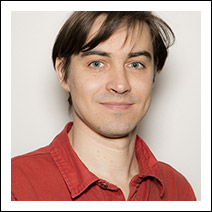
Igor Dotsenko (Laboratoire Kastler Brossel, Collège de France)
Title: Circular Rydberg atoms for quantum simulations
Abstract: A full understanding of many-body quantum systems is of paramount importance, first for the advancement of fundamental quantum science, but also for the development of radically new materials with fully engineered properties. However, the exact computation of relatively small many-body quantum systems of e.g. 40 spin-1/2 (or qubits) is already at the edge of the grasp of modern supercomputers. This limitation can be overcome by implementing quantum simulators. They transcribe the dynamics of the system of interest into another one, in which all parameters are adjustable and all relevant observables accessible. A quantum simulator based on a few tens of qubits would already outperform any foreseeable classical machine. Our experimental group has proposed to use arrays of laser-trapped circular Rydberg atoms to build a quantum simulator [1]. Its realization requires the ability to prepare arbitrary arrays of Rydberg atoms and to provide long atomic lifetime. These requirements are reflected in the two main experiments of our group: spatial manipulation of Rydberg atoms with ponderomotive force and inhibition of atomic spontaneous emission by placing atoms inside a conducting capacitor. In my presentation I first present our latest results on manipulating individual atoms in 2D arrays with optical tweezers. Then, I discuss the main challenges in realizing the emission inhibition, the current status of the project and the perspectives it opens.
[1] T. L. Nguyen et al., Phys. Rev. X 8, 011032 (2018)
Igor Dotsenko is associate professor at Collège de France and is a member at the Kastler-Brossel Laboratory in Paris. He received his PhD from the University of Bonn, Germany. His main research area is experimental quantum physics with individual quantum systems, e.g. with Rydberg atoms and trapped photons. He is interested in quantum optics, atomic physics, quantum thermodynamics, quantum simulations, etc.
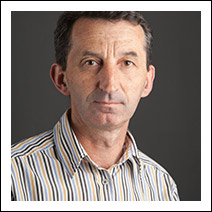
Volodymyr Tkachuk (Ivan Franko National University of Lviv, Ukraine)
Title: Studies of spin systems on a quantum computer
Abstract:
In this talk I will mainly present the results published in [1-4]. We propose a method and the corresponding quantum protocol for determining energy levels of spin systems on a quantum computer. The method is based on studies of the evolution of the mean value of operator anticommuting with Hamiltonian. In this case the evolution of the mean value of the corresponding physical quantity is related with the energy levels of a quantum system. It is in the contrast to the general case when time dependence of the mean value of a physical quantity is related to the transition energies of a quantum system. Therefore proposed method allows us to nd just energy levels on a quantum computer [1]. It is interesting to note that the structure of energy spectrum in this case is related to the supersymmetric properties of the system. Note that this method is restricted to the Hamiltonians for which anticommuting operators exist and the corresponding energy spectrum is symmetric with respect to inversion of the energy. We generalize this method to the case of an arbitrary spin system by adding to the system one probe (ancilla) spin [2]. Studies of the probe spin evolution allow us to determine energy levels of the system. The energy levels of various spin systems are found on IBM’s quantum computer. The results of quantum calculations are in good agreement with the theoretical ones.
The proposed method is applied to studies of the single spin-1 tunneling on IBM’s quantum computer, ibmq-bogota [3]. The spin-1 is realized with two spins-1/2 [3,4]. On the basis of studies of the time dependence of the mean value of z-component of spin-1 on the quantum device we detect oscillations of spin-1 between the states |1> and |-1> in the result of tunneling. The eigenvalues of Hamiltonian which describe the spin tunneling and the energy level splitting are observed on the IBM’s quantum computer.
[1] Kh. P. Gnatenko, H. P. Laba, V. M. Tkachuk, Phys. Lett. A 424, 127843 (2022).
[2] Kh. P. Gnatenko, H. P. Laba, V. M. Tkachuk, Eur. Phys. J. Plus 137, 522 (2022).
[3] K. P. Gnatenko, V. M. Tkachuk, Observation of spin-1 tunneling on a quantum computer, arXiv preprint arXiv:2201.08872 (2022), (to be published in Eur. Phys. J. Plus).
[4] A. R. Kuzmak, V. M. Tkachuk, Probing mean values and correlations of high-spin systems on a quantum computer, arXiv preprint arXiv:2205.10800 (2022).
Volodymyr Tkachuk – chairman of the Department for Theoretical Physics, Ivan Franko National University of Lviv. Theoretical physicist, PhD (Thermodynamic functions and dynamics of structurally disordered systems, 1990), DSc (Supersymmetry and exactly solvable problems in quantum mechanics, 2005). Since 2006 Professor of the Department for Theoretical Physics. One of the developers of the educational program “Quantum computers and quantum programming” at the Ivan Franko National University of Lviv. Research interests are quantum information and quantum computers, quantum graph states, fundamental problems of quantum mechanics, theory of quantum space, zeros of the partition function, supersymmetry in quantum mechanics. Home page https://physics.lnu.edu.ua/en/employee/volodymyr-tkachuk
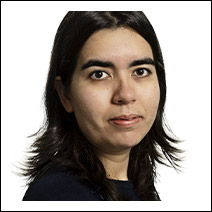
Rayssa Bruzaca de Andrade (Womanium & NKT Photonics)
Title: Probing biological samples with quantum light
Abstract: Quantum-enhanced measurements using squeezed states of light enable, for instance, improvements in the sensitivity of spectroscopy, imaging, and interferometric techniques beyond the shot-noise limit. In this presentation, we discuss the use of squeezed states in Stimulated Raman Spectroscopy. We also present absorption measurements using biological samples as the loss medium, showing sub-shot-noise imaging using a transmission raster scan microscope. Overall, we will highlight how squeezed states can provide benefits for quantum imaging and spectroscopy due to the reduced quadrature fluctuations.
Rayssa Bruzaca works as an R&D optical engineer at NKT Photonics in the quantum solutions group. In addition, at the Womanium Foundation, she led the Quantum Hardware team. She has a Ph.D. in physics from the University of São Paulo. During her postdoctoral research at the Technical University of Denmark, she worked with quantum sensing using squeezed states of light for probing biological samples.
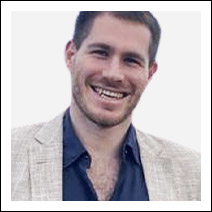
Eden Schirman (Classiq for Academia)
Title: Pioneering End-to-End Quantum Software Development with Classiq
Abstract: Classiq is a leading quantum software company that enables end-to-end quantum software development. From devising your novel quantum algorithm, through generating an optimal quantum circuit, to executing your algorithm on all available quantum computers, Classiq is the one-stop solution for that.
Join us for a hands-on workshop where you will easily design and optimize new complicated quantum algorithms. Through an intuitive user interface, participants will have the unique opportunity to execute their algorithms seamlessly on real hardware, all with the simplicity of just three clicks. By attending, you will uncover the power of Classiq’s comprehensive software suite, revolutionizing the quantum software development process and empowering researchers and developers alike. Feel free to start exploring Classiq even before the workshop by registering at platform.classiq.io
Eden Schirman is the manager of Classiq for academia, where he leads the academic activities of Classiq. Before joining Classiq, Eden completed his masters in quantum dynamics at Imperial College London, where he developed quantum algorithms for attacking the post-quantum cryptography. At Imperial, Eden co-founded and was the president of the Imperial Quantum Technology Society.
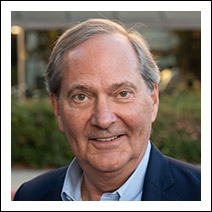
Christopher Bishop (Improvising Careers)
Title: The secrets to working in quantum
Abstract: How do we prepare students to participate in the emerging quantum workplace? What are the opportunities offered by quantum information science? We need to focus more broadly on how this technology is going to evolve and the range of skills that will be needed to support it. And from a learner’s perspective, this represents a range of career opportunities that are going to grow and morph and evolve across many disciplines.
Christopher Bishop is a technology futurist, TEDx speaker and former IBMer. He has performed the role of emcee and led panels for numerous Inside Quantum Technology conferences as well as for The Economist’s “Commercialising quantum” events, both in London and Silicon Valley. Chris hosts the Quantum Tech Pod series, interviewing C-suite executives at leading quantum companies. In addition, he is a member of the Quantum Economic Development Consortium (QED-C) contributing to the Workforce Technology Advisory Committee and managing the Office Hours initiative connecting quantum students with mentors.
Thematic session “Building an Open Quantum Ecosystem”
- Paweł Gora (QWorld): The QCousins Program – Building a Global Network of Quantum Computing Groups
- Claudia Zendejas-Morales (QWorld): Year-long Open QCourse on Quantum Computing & Programming
- Will Zeng (Unitary Fund): Let’s have more open source quantum tech projects!
- Marlou Slot (Womanium): Womanium Quantum – Igniting the Quantum Leaders of Tomorrow
- Jen Dodd (Xanadu): QHack, The One-of-a-kind Quantum Hackathon
- Brian Ingmanson (IBM Quantum): Qiskit Fall Fest: Building a Quantum Community With a Student-First Approach
- Radha Pyari Sandhir (IBM Quantum): Quantum Explorers: A Game-based Approach to Quantum Education
- Yasser Omar (PQI – Portuguese Quantum Institute & IST, University of Lisbon): The World Quantum Day – 14 April
- Andris Ambainis (University of Latvia): Latvian Quantum Initiative – Building Quantum Technologies in a Small Country
- Garazi Muguruza (QuSoft & MNS, University of Amsterdam): Women in Quantum Development (WIQD)
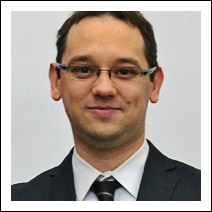
Paweł Gora (QWorld, QPoland, Quantum AI Foundation)
Title: The QCousins Program – Building a Global Network of Quantum Computing Groups
Abstract: In this talk, I will introduce one of QWorld’s programs: QCousins. Its idea is to create active groups on a global scale willing to popularize quantum technologies and to involve more people in the field by working locally and/or internationally (e.g., by organizing workshops, courses, preparing educational materials). I will outline the past, current and future projects of the QCousins program, and explain how to join us and create new QCousin groups.
Paweł Gora – board member of QWorld and Coordinator of its QCousins Department and QPoland’s group. Founder and CEO of the Quantum AI Foundation.
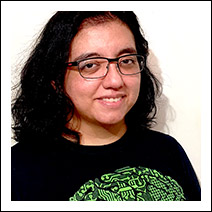
Claudia Zendejas-Morales (QWorld)
Title: Year-long Open QCourse on Quantum Computing & Programming
Abstract: Since having an open-access global ecosystem for quantum technologies and quantum software is the goal of QWorld, a new course is being created: the Year-long Open QCourse on Quantum Computing & Programming. With this QCourse edition, we will cover the necessary bases to start studying Quantum Computing, from the essential mathematics, an introduction to Python programming, and an introduction to quantum mechanics, going through the concepts of a classical probabilistic system to give way to the quantum counterpart and to reach the study of various quantum algorithms. It will be a course that covers several chapters to achieve the objective, starting September 2023 and projecting completion in May 2024; it will be an entirely online course with homework and exams to complete an evaluation of the students, who will have lectures, lab sessions, as well as the opportunity to consult mentors so that they can solve their doubts as they arise. At the end, the students will have chances to examine self-study modules on different quantum topics such as quantum hardware, quantum annealing, quantum key distribution, quantum error correction. The whole course materials will be open-sourced and freely available.
Claudia Zendejas-Morales is a Computer Engineer and Physicist. She’s been an instructor and mentor leader in multiple qcourses from QWorld, some in collaboration with University of Latvia. She is also part of the Qiskit Advocate program and collaborates as a mentor in events organized by IBM; she is part of the core team of the localization project. She is a research intern at Perimeter Institute (Waterloo, Canada). Her primary interest is Quantum Computing and Quantum Machine Learning
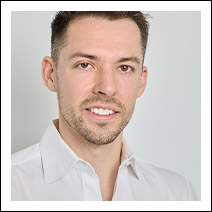
Will Zeng (Unitary Fund)
Title: Let’s have more open source quantum tech projects!
Abstract: Open source is an effective way to build ecosystems in new technologies. This talk will review the programs that Unitary Fund is using to support work in open quantum technologies as well as highlight funding areas of interest for new projects.
Will Zeng – Founder and President, Unitary Fund
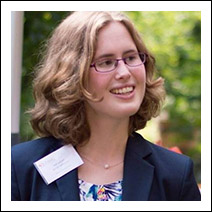
Marlou Slot (Womanium)
Title: Womanium Quantum – Igniting the Quantum Leaders of Tomorrow
Abstract: How to lead and to leap in quantum? How to become a quantum creator and leader? To build the quantum workforce of tomorrow, Womanium launched the Global Quantum Program and trained 1200+ people (45% women) from 70+ countries in its first year. During a full summer, the program takes quantum from the lab to the real world – How does quantum sensing revolutionize imaging the brain, earth and space? How to program quantum algorithms that help finance, healthcare and energy applications? What are the advantages of different qubit modalities? And how to start and fund your own startup? With virtual lab tours, hardware lectures, software bootcamps, investor and founder panels, a career fair and industry projects in collaboration with 60+ partners from industry, government and academia.
Dr. Marlou Slot is a quantum materials physicist at NIST and heads the quantum team at Womanium. Womanium works with leading US government agencies, labs and companies to create future scientific leaders and advance women in STEM+E. To train the global quantum workforce, Womanium organizes flagship programs in Quantum Computing, Sensing and Applications, bringing together CEOs, scientists and industry leaders from the quantum field to train young talent.
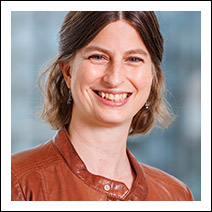
Jen Dodd (Xanadu)
Title: QHack, The One-of-a-kind Quantum Hackathon
Abstract: Call it a fan expo, hackathon or scientific conference, QHack is a one-of-a-kind event that has been bringing people together for four years to celebrate all things quantum. In this talk I will talk about the advantages and disadvantages of being an online event, how we’ve massively increased the rate of active engagement in QHack, and why Coding Challenges are the best thing since sliced bread.
Jen Dodd is the Quantum Computing Community Lead at Xanadu (Toronto, Canada) where our mission is to make quantum computers that are useful and available to people everywhere. She holds a PhD in Physics from The University of Queensland in Australia, focusing on theoretical quantum computing. She has spent most of her career building communities around big ideas in science and technology.
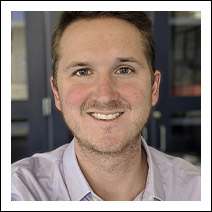
Brian Ingmanson (IBM Quantum)
Title: Qiskit Fall Fest: Building a Quantum Community With a Student-First Approach
Abstract: The Qiskit Fall Fest is a collection of student-led events focused on quantum computing engagement and education. Powered by IBM Quantum but designed by the students themselves, these events have reached more than 6000 students with hands-on activities and challenges. Brian Ingmanson of IBM Quantum will discuss the goals, successes, and lessons learned from the program.
Brian Ingmanson is the Education Engagement Lead for the IBM Quantum Community Team. He works with students and educators around the world to host engaging events and create new learning pathways into the field of quantum computing. Brian left his classroom after 6 years of public education and joined IBM Quantum in 2019. He holds a Bachelor’s and Master’s in Education from the University of Connecticut. Brian frequently presents on stage for adults and students, and sometimes plays the drums. Occasionally he’s known to do both at the same time.
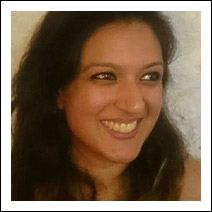
Radha Pyari Sandhir (IBM Quantum)
Title: Quantum Explorers: A Game-based Approach to Quantum Education
Abstract: Quantum Explorers is a self-paced educational program at IBM Quantum that uses gamification to bring cohorts of students through various learning paths. Learners work towards unlocking space exploration themed achievements by tackling quantum labs, completing assessments, participating in community events, and more. This game-based approach to learning quantum computing has the potential to cater to a variety of learner types, boost learner engagement, and improve information processing and retention, among other perks. This talk will cover the lessons learned from the inaugural cohort of the Quantum Explorers, and future plans.
Radha Pyari Sandhir – India Community Lead and Quantum Explorers program lead at IBM Quantum.
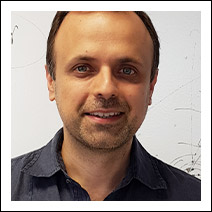
Yasser Omar (PQI – Portuguese Quantum Institute & IST, University of Lisbon)
Title: The World Quantum Day – 14 April
Abstract: The World Quantum Day (worldquantumday.org), celebrated on 14 April and in the days and weeks around that date, is an initiative from quantum scientists from 65+ countries. It is a decentralized and bottom-up initiative, inviting all scientists, engineers, educators, etc., and their organisations, to develop their own activities, such as outreach talks, exhibitions, lab tours, panel discussions, interviews, artistic creations, etc., to celebrate quantum science and technology around the World. It is also a unique opportunity to establish global collaboration links at a global scale for research, education, and outreach.
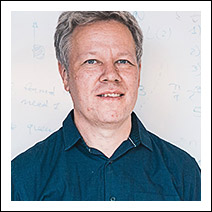
Andris Ambainis (University of Latvia)
Title: Latvian Quantum Initiative – Building Quantum Technologies in a Small Country
Abstract: In this talk, I describe how we developed the Latvian Quantum Initiative – a technology project that started in February 2023. In contrast to all-encompassing Quantum Initiatives in larger countries, we focused on selected areas of quantum technologies which are important to Latvia either because of existing research strength (for example, in quantum software) or because of practical importance in near-term future (for example, the development of European Quantum Communication Infrastructure). At the same time, we aimed to include both research and education and to expand the excellence to new research areas (for example, by building infrastructure for experimental research at very low temperatures). This conceptual approach may be useful for developing Quantum Initiatives in other smaller countries.
Andris Ambainis is a quantum computer scientist known for quantum walks, quantum query lower bounds and other developments in quantum algorithms and complexity. He received an ERC Advanced Grant in 2012 and is now leading the Latvian Quantum Initiative.
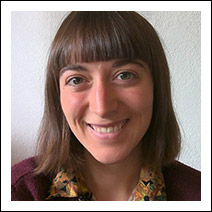
Garazi Muguruza (QuSoft & MNS, University of Amsterdam)
Title: Women in Quantum Development (WIQD)
Abstract: In this talk I will introduce WIQD’s initiative to tackle the lack of gender diversity in the quantum network. WIQD is a professional network in the quantum sector in the Netherlands including industry, academia and policy. I will explain our organization’s structure, mission, activities we organize and future plans.
Garazi Muguruza is a PhD candidate in Quantum Networks, with interest in Quantum Cryptography and Quantum Information Theory, at QuSoft. She has been an organizing committee member of WIQD since the start of her PhD.
Contributed Talks
[In their submitted order / Speaker(s) are underlined]
- A Secured Half-Duplex Bidirectional Quantum Key Distribution Protocol against Collective Attacks
Manal Khawasik, Wagdy Gomaa El-Sayed, M. Z. Rashad, Ahmed Younes (Alexandria University, Egypt; Mansoura University, Egypt; University of Birmingham, UK) - Framework for understanding quantum computing use cases from a multidisciplinary perspective and future research directions
Anastasija Nikiforova, Dandison Ukpabi, Heikki Karjaluoto, Astrid Bötticher, Dragoş Petrescu, Paulina Schindler, Visvaldis Valtenbergs, Lennard Lehmann, Abuzer Yakaryilmaz (University of Tartu, Estonia; University of Jyväskylä, Finland; Friedrich-Schiller-University Jena, Germany; University of Bucharest, Romania; University of Latvia; QWorld Association) - Self-testing composite measurements and bound entangled state in a unified framework
Shubhayan Sarkar, Chandan Datta, Saronath Halder, Remigiusz Augusiak (Universite Libre De Bruxelles, Belgium; Polish Academy of Sciences; University of Warsaw, Poland) - Democratization of quantum technologies
Zeki C. Seskir, Steven Umbrello, Christopher Coenen, Pieter E Vermaas (KIT-ITAS, Germany; Delft University of Technology, Netherlands) - Global innovation and competition in quantum technology, viewed through the lens of patents
Zeki C. Seskir, Kelvin W. Willoughby (KIT-ITAS, Germany; HHL Leipzig Graduate School of Management, Germany) - Quantum gate synthesis and Ramanujan
Nihar Gargava (EPFL, Switzerland) - A Riemannian Genuine Measure of Entanglement for Pure States
R. Dharmaraj, Radhika Vathsan (Birla Institute Of Technology And Science, India) - Visualizing Quantum Circuit Probability
Aritra Sarkar, Bao Gia Bach, Akash Kundu, Tamal Acharya (Delft University of Technology, Netherland; Ho Chi Minh City University of Technolog, Vietnam; , Silesian University of Technology, Poland; Polish Academy of Sciences; QuTech) - Tighter And Stronger Quantum Speed Limits For General Quantum States
Shrobona Bagchi, Abhay Srivastav, Arun Kumar Pati (Korea Institute of Science and Technologies; Harish-Chandra Research Institute, India) - Remote Creation of Quantum Coherence via Indefinite Causal Order
Shrobona Bagchi, Jasleen Kaur, Arun K. Pati (Raymond and Beverly Sackler School of Physics and Astronomy, Israel; Amity Institute of Applied Sciences, India; Harish-Chandra Research Institute, India, Homi Bhabha National Institute, India) - Uranium – a visual quantum computing platform
Radu Marginean (Transilvania Quantum) - Phase estimation with functional quantum abstract detecting systems
Guillermo Lugilde, Elías F. Combarro, Ignacio F. Rúa (University of Oviedo) - Investigation of open quantum batteries and using IBM quantum computers as a versatile platform to simulate them
Seyed Navid Elyasi (University of Kurdistan, Iran) - Entangling capability of multi-qubit parameterized quantum circuits and its calculation with quantum programming
Kh. P. Gnatenko (Ivan Franko National University of Lviv & SoftServe Inc., Ukraine) - Multiple-control Toffoli Circuit Classification and Transformation
Ankit Khandelwal, Handy Kurniawan, Shraddha Aangiras, Adam Glos, Ozlem Salehi (Tata Consultancy Services, India; University of Tartu, Estonia, Polish Academy of Sciences; Algorithmiq Ltd, Finland) - Is it rational to connect quantum computers?
Luca M. Possati, Pieter Vermaas (Delft University of Technology, Netherland) - Quantum Advantage Seeker with Kernels (QuASK): a software framework to speed up the research in quantum machine learning
Massimiliano Incudini, Francesco Di Marcantonio, Davide Tezza, Michele Grossi (University of Verona, Italy; CERN; University of Trento, Italy) - Generation, Stabilization and Manipulation of Kerr Cat States in Superconducting Resonators
Muhammad Shuraim (Pakistan Institute of Engineering and Applied Sciences) - Quantum carpets: efficiently probing fractional revivals in position-dependent mass systems
Tooba Bibi, Sunia Javed, Shahid Iqbal (National University of Sciences and Technology, Pakistan) - Surface code design for asymmetric error channels
Utkarsh Azad, Aleksandra Lipińska, Shilpa Mahato, Rijul Sachdeva, Debasmita Bhoumik, Ritajit Majumdar (Xanadu Quantum Technologies; International Institute of Information Technology, India; ; Jagiellonian University, Poland; IndianInstituteof Technology Dhanbad; Jülich Supercomputing Center, Germany; Indian Statistical Institute) - Quantum Steering Algorithm for Estimating Fidelity of Separability
Aby Philip, Soorya Rethinasamy, Vincent Russo, Mark M. Wilde (Cornell University, USA; Unitary Fund)A; Unitary Fund) - Effective Study Of The Quantum Damped Harmonic Oscillator
Carlos Javier Valdez (Universidad Autonoma de Chihuahua, Mexico) - Nonlocality Distillation With Non-Trivial Marginals
Areej Ilyas, Jibran Rashid (Institute of Business Administration, Pakistan) - Faster quantum sampling of Markov chains in nonregular graphs with fewer qubits
Yun Shang, Xinying Li (Chinese Academy of Sciences) - QJudge: Automated Testing of Students Solutions for Quantum Algorithms Courses
Mansur Ziiatdinov (Kazan Federal University) - TQSim : An Open-Source Package for Topological Quantum Computing with Anyons
Nacer eddine Belaloui, Abdellah Tounsi, Mohamed Messaoud Louamri, Mohamed Taha Rouabah (CQTech & University of Constantine 1, Algeria) - Systematic Braid Matrix Generation for Topological Quantum Computing
Abdellah Tounsi, Nacer Eddine Belaloui, Mohamed Messaoud Louamri, Achour Benslama, Mohamed Taha Rouabah (CQTech & University Constantine 1, Algeria) - Mapping state transition susceptibility in quantum annealing
Elijah Pelofske (Los Alamos National Laboratory) - Tensor network techniques for quantum transport beyond weak coupling
Gabriela Wojtowicz, Justin E. Elenewski, Marek M. Rams, Michael Zwolak, Bitan De, Jakub Zakrzewski (Jagiellonian University, Poland; National Institute of Standards and Technology, USA; University of Maryland, USA) - A Novel Multi-Stage Cancer Workflow using Quantum and Classical Machine Learning & microRNA signatures
Shaurya Agrawal (Adlai E. Stevenson High School, Illinois, USA; Womanium) - Single microwave Photon detection based Josephson junction
Alex Stephane Piedjou Komnang, Claudio Guarcello, Carlo Barone, Alessio Rettaroli, Claudio Gatti, Sergio Pagano, Giovanni Filatrella (University of Salerno, Italy; INFN Gruppo Collegato di Salerno, Italy; Laboratori Nazionali di Frascati, Italy; University of Roma Tre, Italy; University of Sannio, Italy)
Call for contributed talks
Scope: All aspects of quantum information science and technology.
We welcome contributed talk submissions reporting on original research results, as well as reporting on internship projects (e.g, QIntern 2022), ongoing and completed BSc and MSc thesis works, and open-source software. We also welcome outreach talks. As many talks as possible will be selected for oral presentations. There will be no poster session. Previously published or presented talks, preferable recent ones, are welcome to be submitted. The duration of contributed talks depends on the number of accepted talks (we estimate it around 20 minutes).
There will be an abstract booklet available to the participants/listeners before the meeting. Each accepted work will be recorded and then made publicly available after the conference. At least one speaker must present their work if accepted.
Submissions are closed! by April 19, 2023 (extended deadline) the World Quantum Day 2023 (Friday, April 14, 2023).
Submit your work by filling the following Google form, and (i) either upload a manuscript or an extended abstract of around two pages through the form (ii) or provide a link (e.g., arXiv or DOI) to your (published) work.
Submission Form >>
Committees
Program committee
James Robin Wootton (IBM Research, Zurich)
Alessandra Di Pierro (University of Verona, Italy)
Marlou Slot, co-chair (Womanium & NIST, USA)
Radha Pyari Sandhir (IBM Quantum)
Laura Piispanen (Aalto University, Finland)
Orsolya Kalman (QHungary & Wigner Research Centre for Physics, Hungary)
Jibran Rashid (QWorld & Institute of Business Administration, Karachi, Pakistan)
Taha Rouabah (CQTech & University of Constantine 1, Algeria)
Katarzyna Rycerz (AGH University of Science and Technology, Poland)
Andrii Semenov (Bogolyubov Institute for Theoretical Physics, Ukraine)
Abuzer Yakaryilmaz, co-chair (QWorld & University of Latvia)
Organizing committee
Abuzer Yakaryilmaz, chair (QWorld & Latvian Quantum Initiative)
Engin Baç (QWorld)
Shantanu Misra (QWorld)
Jibran Rashid (QWorld)
Marlou Slot (Womanium & NIST)
Agnieszka Wolska (QWorld Marketing Lead)
Code of conduct
Based on the codes of conduct by Geek Feminism Wiki & TQC.
Our event is dedicated to providing a harassment-free meeting experience for everyone, regardless of gender, gender identity and expression, sexual orientation, disability, physical appearance, body size, race, age or religion. We do not tolerate harassment of event participants in any form. Sexual language and imagery is not appropriate for any event venue, including talks. Event participants violating these rules may be sanctioned or expelled from the workshop at the discretion of the workshop organizers.
Harassment includes, but is not limited to:
- Offensive comments related to gender, gender identity and expression, sexual orientation, disability, physical appearance, body size, race, age, religion.
- Sexual images in public spaces
- Deliberate intimidation, stalking, or following
- Harassing photography or recording
- Sustained disruption of talks or other events
- Inappropriate physical contact
- Unwelcome sexual attention
- Advocating for, or encouraging, any of the above behavior
- Participants asked to stop any harassing behavior are expected to comply immediately.
If a participant engages in harassing behavior, event organizers retain the right to take any actions to keep the meeting a welcoming environment for all participants. This includes warning the offender or expulsion from the event.
Event organizers may take action to redress anything designed to, or with the clear impact of, disrupting the event or making the environment hostile for any participants.
We expect participants to follow these rules at all event venues and event-related social activities. We think people should follow these rules outside event activities too!
Reporting
If someone makes you or anyone else feel unsafe or unwelcome, please report it as soon as possible. Harassment and other code of conduct violations reduce the value of our event for everyone. We want you to be happy at our event. People like you make our event a better place.
You can make a personal report by contacting any of the organizers.
Our team will be happy to help you to feel safe for the duration of the event. We value your attendance.
